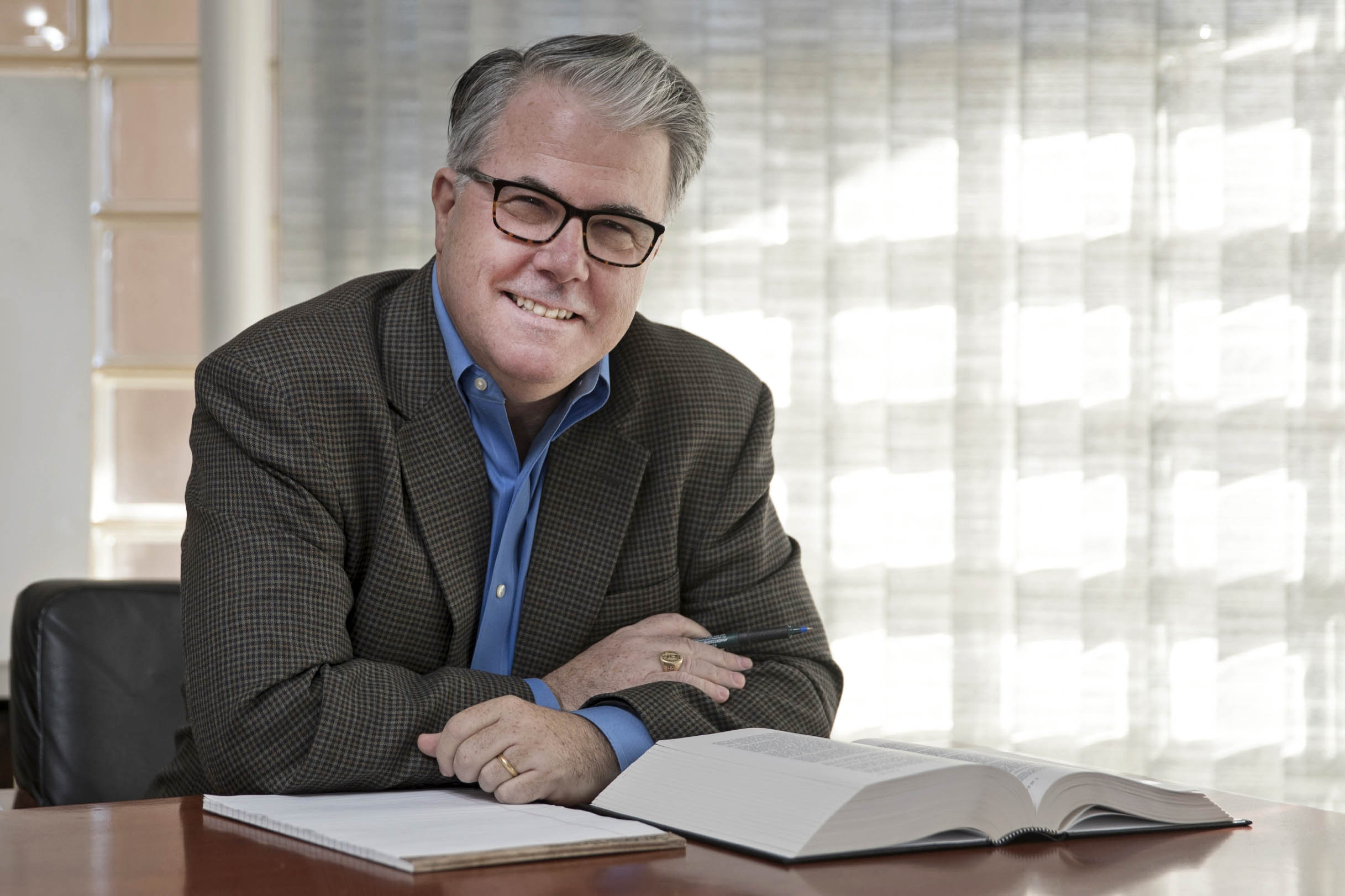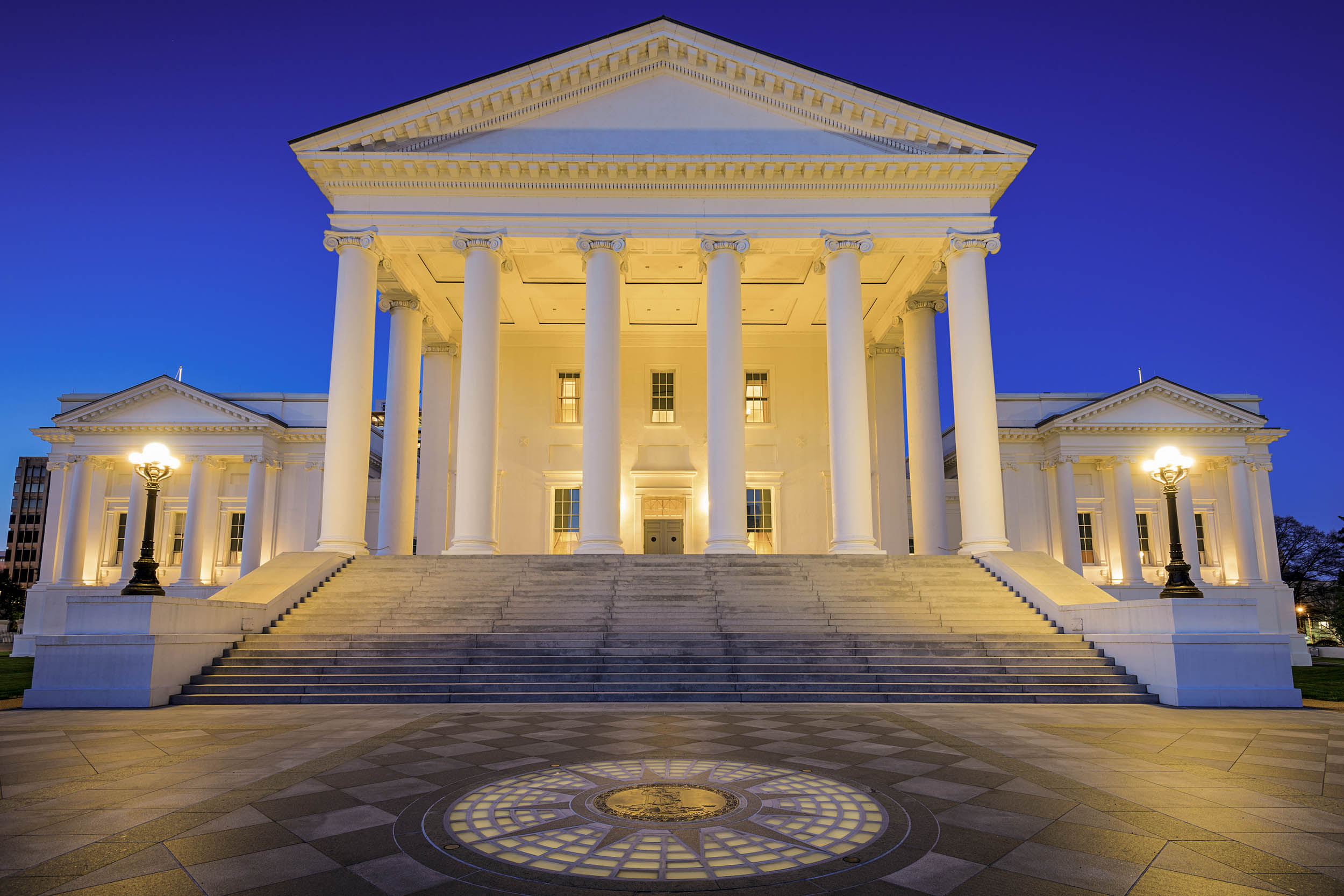Virginia Gov.-elect Ralph Northam turned to the Sorensen Institute for Political Leadership at the University of Virginia in 2007, near the beginning of his political career, for intensive training in the essentials of political campaigning.
That year, the pediatrician was elected to his first term as a state senator. A decade later, the 58-year-old Democrat is preparing to become Virginia’s 73rd governor, having comfortably defeated his opponent, Republican candidate Ed Gillespie, in Tuesday’s statewide election.
Northam joins 27 other Sorensen alumni, both Republicans and Democrats, who were elected or re-elected in Virginia on Tuesday, including 17 members of the House of Delegates and 10 local officeholders. In total, 29 alumni currently serve in the General Assembly; 22 in the House of Delegates and seven in the State Senate. Hundreds more hold other elected offices, serve in appointed and staff positions in government or lead nonprofits and private companies.

Thomas Walls, the executive director of the Sorensen Institute, has previously served as a senior staff member to three U.S. Senators, including Virginia Sen. Mark Warner. (Photo by Dan Addison, University Communications)
“They represent a broad variety of legislative districts, ranging from large metropolitan areas to small communities,” Executive Director Thomas Walls said. “These legislators are visible reminders that politics can be about the heated clash of ideas, but that our differences do not have to divide us.”
The nonpartisan institute, founded at UVA in 1993, offers five programs for Virginians interested in public service, all emphasizing trust, civility and respect in politics while providing practical training and educating future leaders about issues facing the commonwealth. Sorensen receives no state or UVA funds; its programs are funded entirely through private contributions and program tuition.
“We bring together people from across the ideological spectrum, and we discuss tough issues in a civil, respectful and truthful manner,” Walls said. “Our hope is that when people complete their time here, they will go into leadership positions and continue to model that behavior.”
Northam is the first Sorensen alumnus elected governor in the institute’s 25-year history. However, as alumni advance in their careers, Walls expect there will be many more.
“I’d love to see two Sorensen people square off for governor,” he said, chuckling. “I think we will get there soon.”
The institute’s flagship Political Leaders Program runs for nine months each year, training approximately 35 competitively selected future leaders in ethics, campaign laws, public policy issues affecting Virginians and leadership development. Like all other Sorensen programs, it includes a balance of speakers and participants from both major parties, as well as those from third parties or without party affiliation. Acceptance is need-blind, and in 2017 the institute met 100 percent of participants’ demonstrated financial need using a combination of grants, scholarships and financial aid.
The Candidate Training Program, which Northam completed, is a shorter program for those running for office in the immediate future. It focuses intensively on the fundamentals of running a successful campaign, including ethics, election law, message development, planning and budgeting, fundraising, advertising, opposition research, media management and get-out-the-vote efforts.
“It’s very practical training,” Walls said. “What is unique about it is that it brings Republicans and Democrats together for that training, with experts from both sides of the aisle coming in as guest speakers.”
Three other programs educate younger leaders. The Emerging Leaders Program is designed for Virginia residents ages 22 to 32 who have worked in state government and want to become more active in public service. The two-week High School Leaders Program brings high school juniors and seniors to UVA to study state and local government and public policy. The students practice public speaking, debating, holding press conferences and lobbying legislators about issues they care about. An updated College Leaders program will launch next year, providing college students an intensive experience in civic education and politics and emphasizing skills that will help them launch their careers.

All of the programs, Walls said, aim to ensure that Virginia has a robust supply of ethical and informed political leaders who are interested in solving problems at every level of government.
“Those elected to higher office get more press coverage, but we also pay a lot of attention to local races at every level,” he said. “Those offices are important, and they are also a training ground for people likely to pursue politics at a higher level in the future.”
He noted that Tuesday’s election results highlighted the importance of both local and state elections.
“The number of uncontested races at all levels shrunk dramatically, and the rate of participation increased both from those seeking office and those coming out to vote,” Walls said. “That is a healthy thing.”
For information about the Sorensen Institute and its upcoming programs and events, visit www.sorenseninstitute.org.
Media Contact
Article Information
November 9, 2017
/content/28-sorensen-institute-alumni-were-elected-tuesday-including-ralph-northam

